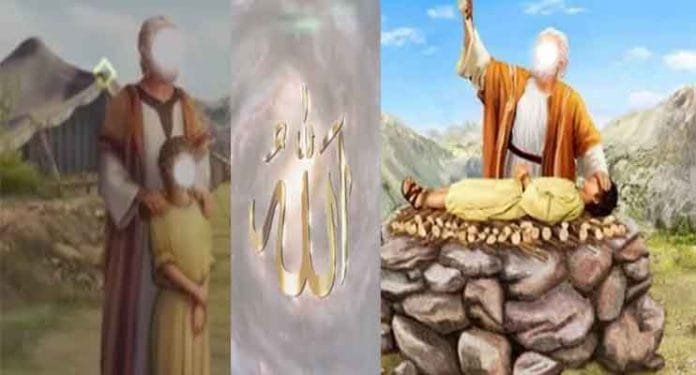Eid-ul-Adha, also known as Bakrid, is one of the most significant festivals in Islam. Celebrated globally by Muslims, this festival is observed on the 10th day of Dhu-al-Hijjah, the final month of the Islamic lunar calendar. This year, Bakrid will be celebrated on 17 June 2024. The festival commemorates the profound act of faith and obedience exhibited by Hazrat Ibrahim (Abraham) when he willingly prepared to sacrifice his beloved son, Ismail (Ishmael), at Allah’s command.
Historical Significance of Bakrid
The roots of Bakrid trace back to a pivotal event in Islamic tradition. According to Islamic beliefs, Hazrat Ibrahim dreamt that Allah commanded him to sacrifice his son Ismail to demonstrate his unwavering faith and obedience. Though deeply distressed, Ibrahim resolved to fulfill Allah’s command. As he was about to sacrifice his son, Allah intervened, providing a ram to be sacrificed instead. This act of submission to divine will is the cornerstone of Bakrid, symbolizing faith, devotion, and the spirit of sacrifice.
The Ritual of Sacrifice
The ritual of Qurbani (sacrifice) is central to Bakrid celebrations. A goat, sheep or camel is sacrificed in remembrance of Ibrahim’s devotion. The meat from the sacrificed animal is divided into three parts:
- One-third is distributed to the poor and needy.
- One-third is given to friends and relatives.
- One-third is kept for the family’s own consumption.
This division underscores the values of charity, community, and gratitude, reinforcing the bond among the Muslim Ummah (community).
Spiritual and Social Dimensions of Sacrifice
The act of sacrifice during Bakrid is more than a mere ritual; it embodies profound spiritual and social dimensions. The spiritual significance lies in the demonstration of total submission to Allah’s will, reflecting Ibrahim’s ultimate act of faith. It teaches Muslims the importance of obedience, patience, and trust in Allah.
Socially, the distribution of meat ensures that the joy of the festival reaches all segments of society, particularly the less fortunate. This practice promotes social equality and fosters a sense of empathy and solidarity within the community.
Bakrid and the Pilgrimage of Hajj
Bakrid is intrinsically linked to the Hajj pilgrimage, one of the five pillars of Islam. Hajj, undertaken by millions of Muslims annually, culminates with the celebration of Bakrid. The pilgrims perform the act of Qurbani at Mina, near Mecca, as part of their Hajj rituals. This synchronization underscores the unity of Muslims worldwide, all commemorating Ibrahim’s sacrifice.
The Month of Dhu-al-Hijjah
Dhu-al-Hijjah, the final month of the Islamic calendar, holds special significance due to Hajj and Bakrid. The first ten days of this month are particularly sacred, with Muslims engaging in increased acts of worship, including fasting, prayer, and charity. The 10th day, marked by Bakrid, is the climax of these days of devotion.
Lessons and Values from Bakrid
Bakrid imparts several key lessons and values:
- Faith and Obedience: The festival reinforces the importance of unwavering faith in Allah and complete obedience to His commands.
- Sacrifice and Selflessness: It teaches the value of sacrificing personal desires and comforts for the greater good and divine will.
- Charity and Compassion: The distribution of Qurbani meat emphasizes the importance of helping the less fortunate, fostering a spirit of generosity and compassion.
Celebrating Bakrid in Modern Times
In contemporary society, Bakrid celebrations blend traditional practices with modern sensibilities. While the core rituals remain unchanged, many Muslims use this occasion to engage in broader acts of charity and community service. Educational programs and social gatherings are organized to spread the message of Bakrid and its underlying values.
Global Observance of Bakrid
Bakrid is celebrated with great enthusiasm across the globe. Each region has its unique customs and traditions, adding to the festival’s rich cultural tapestry. From grand feasts and communal prayers to vibrant markets and festive attire, Bakrid brings together Muslims from diverse backgrounds in a shared expression of faith and joy.
Eid Prayers and Festive Gatherings
The day of Bakrid begins with the special Eid prayer performed in congregation, often in open fields or large mosques. This prayer is followed by a sermon emphasizing the significance of the festival and the story of Ibrahim’s sacrifice. After prayers, families and friends gather to celebrate, exchange gifts, and share meals, strengthening social bonds and communal harmony.
Conclusion
Bakrid, or Eid-ul-Adha, is a festival rich in history, spirituality, and community spirit. It commemorates the ultimate act of faith by Hazrat Ibrahim and highlights the virtues of obedience, sacrifice, and charity. As Muslims around the world prepare to celebrate Bakrid on 17 June 2024, they will not only honor a historical tradition but also embrace the timeless values that continue to inspire and unite the global Muslim community.














